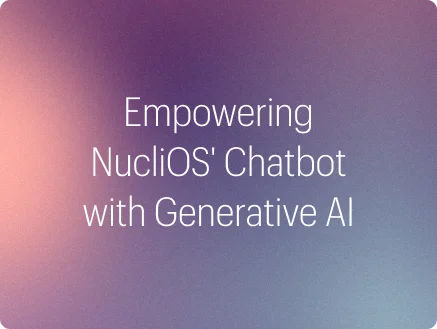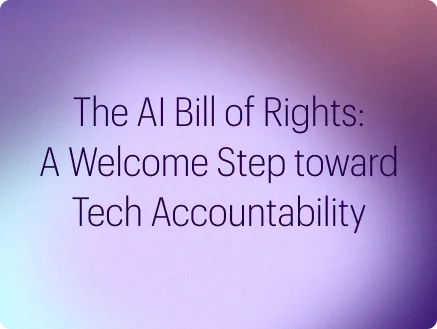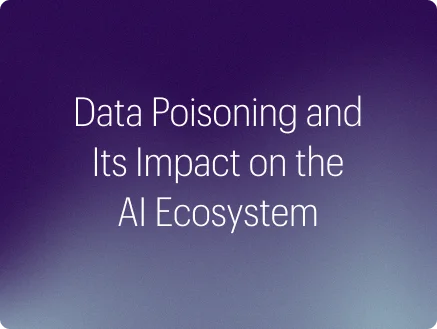The buzz around ChatGPT is extraordinary. When we consider all the new technologies, it is remarkable what ChatGPT has accomplished in such a short period of time. For instance, it took 150 days for Spotify and nearly 75 days for Instagram to reach one million downloads or users [1], whereas, quite incredibly, it only took five days for ChatGPT to hit that number[2]. It truly seems like the long-awaited AI revolution is here, and we all have ringside seats.
ChatGPT is still relatively new in its lifecycle. At this point, it just answers questions that are asked in the best possible manner. That is, with the influx of ChatGPT, Microsoft’s own version of it, and all the other add-ons, the ability to answer questions is becoming radically commoditized. While newer features and add-ins to generative AI happen, conceptually, the idea remains the same—there is an understanding of the question asked and a consequent response that tries to be contextual to the input given.
So, what does that mean for us and the future? We need to answer big questions like what skills become obsolete and what remain relevant. We need to understand where our efforts can truly add value.
One thing is clear—with the arrival of ChatGPT, the ability to ask questions will become even more crucial, and those who ask better questions will win. But this is not a new phenomenon. Throughout history, we can see that asking the right questions in the right context is how we’ve realized the true value of anything. Every new technology has made our ability to answer those questions better, but the ability to ask the right questions remains the cornerstone for every big leap.
Let’s consider the late Renaissance era when the scientific revolution was taking shape, and a new research tradition of systematic experimentation known as the ‘scientific method’ emerged among the scientific community. The foundation of the scientific method was asking different questions to establish causal relationships. The scientific method is recognized as the catalyst for the technological leaps that followed.
Several years down the line, as we move on to the invention of computers, computational speed was the main talking point. Technology gave us the ability to take many big numbers, provide operators, and compute things many times over again and again. But we have always had to ask the bigger question: what to compute?
We have always tried to advance the science of asking questions over time to keep up with the ability to answer them. Just like the scientific method during the Renaissance, a new theory around problem-solving emerged in the 1960s, when computers gained prominence. Its foundational principles were formulated by American scientist Herbert Simon and others. These principles involved a deep investigation of the problem statement with different questions. This theory evolved and later became ‘design thinking,’ while the original concepts remained the same.
We can also spot the importance of asking the right questions in the late 1990s. When budding computer scientists Larry Page and Sergey Brin invented Google, it changed the way we could access and handle information. Searching for something became easy as the information was right at your fingertips. But then again, you had to know what to ask the Google search engine, and ‘googling,’ or asking the right questions, became a skill that we had to master.
ChatGPT might just be the latest technology to emphasize the importance of asking the right question in the right context. The world is moving towards a place where context becomes extremely important, and the ability to understand the context and ask the right questions will differentiate success from failure. In a world where information, insight, and knowledge are more prolific, we are all curators asking the right questions and cutting through the noise to provide the right information at the right time to make the right decision.
Not sure how you can integrate generative AI into your business? Join our workshop and let our experts help you take the right steps.
Bibliography
1. Shontell, Alyson. “Here’s How Long It Took 15 Hot Startups to Get 1,000,000 Users.” Business Insider, January 8, 2012. https://www.businessinsider.com/one-million-users-startups-2012-1?IR=T.
2. Mollman, Steve. “CHATGPT Gained 1 Million Users in under a Week. Here’s Why the AI Chatbot Is Primed to Disrupt Search as We Know It.” Yahoo!, December 10, 2022. https://www.yahoo.com/video/chatgpt-gained-1-million-followers-224523258.html?guccounter=2&guce_referrer=aHR0cHM6Ly90ZXN0LW1hdGhjby53cHdvcmtzLmFwcC8&guce_referrer_sig=AQAAAKNzFZ8Grf_-p2xBr8pHOde5bef8WVfvcmErtdVeVQ-2m0LHGeLv09tkosu3uGnapstSSeEeCvcViiWrwDofJEm1nTp0GCkEEuo3KppLvY0s5FoC4UUIVA_NXsqB3yE0PbUjDRsWDilAWFsuCmZMZn_lFtx0CJViQEfGAuPruIcQ.



